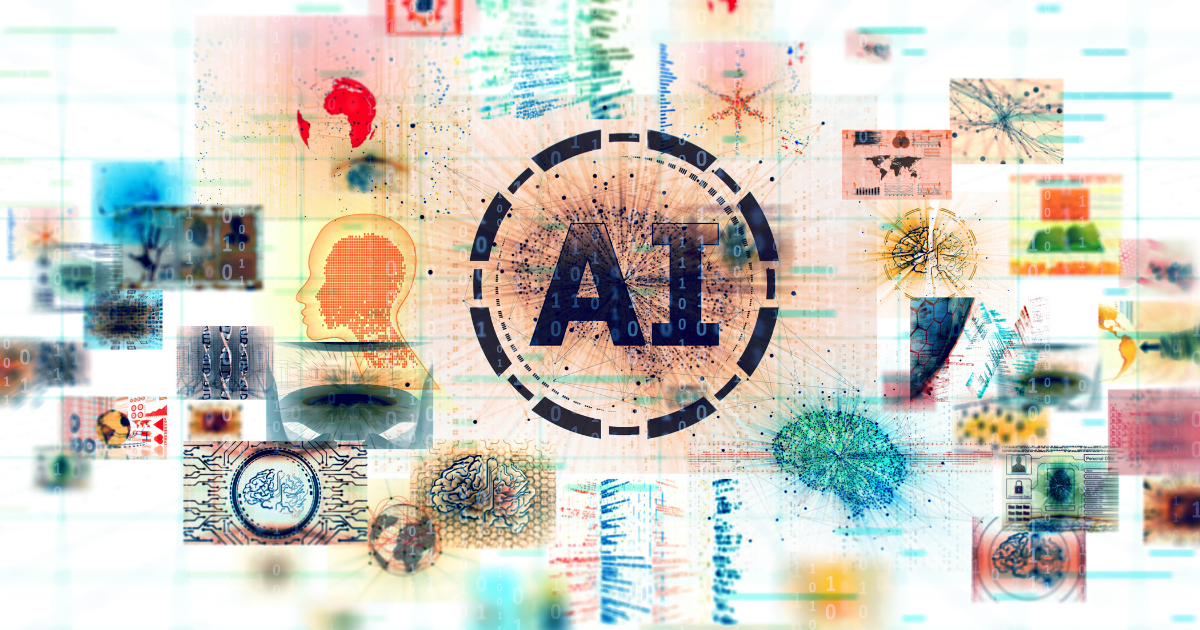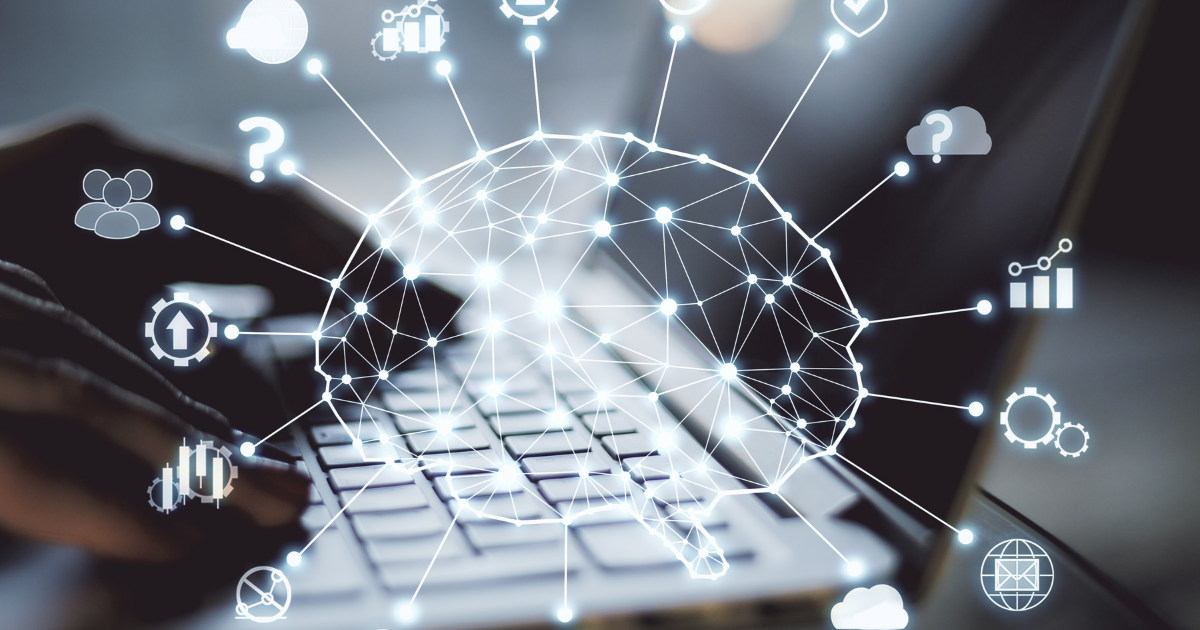Role of Artificial Intelligence in Business
Artificial intelligence in business is the use of artificial intelligence technologies to help make business decisions. AI uses to simplify many business processes and tasks. AI technology can help businesses in many different areas and industries.
Artificial Intelligence allows computers to ‘think’ for themselves by using data sets to identify patterns. Artificial intelligence uses algorithms to analyze large datasets and develop solutions with minimal human input or intervention. It is increasingly used by large and small. AI is often can credit with transforming entire industries, from retail to manufacturing.
- In human resources, companies are using Artificial intelligence to help with things like identifying potential candidates for open positions. In customer relations, businesses are taking advantage of chatbots to provide automated customer support.
- Some companies are also using AI for things like targeted marketing and fraud detection. As AI continues to evolve, we can expect to see even more examples of its use in business. Its ability to streamline various tasks and processes can make it a valuable asset for any company.
- One common use of Artificial intelligence is in customer service. Companies are using chatbots to communicate with customers and provide them with information about products and services. Chatbots can understand natural language and respond in real time, 24 hours a day. This frees up customer service representatives to handle more complex issues.
- Another area where AI can use in a business is data analysis. Artificial intelligence can sift through large amounts of data quickly and identify patterns that human beings might miss. This information can use to make better decisions about pricing, marketing, and product development.
As you can see, artificial intelligence is already having a major impact on businesses around the world. And this is just the beginning – AI will likely continue to transform the business world in ways.
Benefits of Artificial Intelligence in Business
Artificial Intelligence in business has many benefits; like scheduling meetings or organizing documents, or discovering new growth opportunities. AI also helps companies save significant costs by automating repetitive manual processes like data entry or customer service inquiries. Artificial intelligence is the ability of a computer system to accurately perform tasks that would normally require human intelligence. In business, artificial intelligence can use in many ways, including:
- automating processes
- providing customer service
- improving marketing campaigns
- increasing efficiency
Artificial Intelligence is using machines to carry out tasks that would otherwise require human intelligence. This can include tasks such as data analysis and pattern recognition. Artificial Intelligence has had many uses in business for many years, but its popularity has exploded in recent years.
Businesses are now able to harness the power of Artificial Intelligence to gain a competitive edge. Artificial Intelligence can use for tasks such as customer service, marketing, and even sales. AI is likely to become even more prevalent in business, as businesses look for ways to automate more tasks.
Artificial Intelligence is also helping companies integrate different aspects of their operations such as marketing, sales, finance, and manufacturing into one streamlined system allowing them to work more efficiently.
By leveraging Artificial Intelligence companies can gain better insights into their operations enabling them to make more informed decisions about how they run their businesses.
Artificial Intelligence (AI) is slowly becoming more prevalent in the business world as its capabilities are further developed. Many companies utilize AI in various departments such as human resources, customer relations, and marketing.
Applications of AI in Business
1. Creating Smart Content
Smart content applications of AI can enable businesses to streamline operations and use contextual interaction for better insights. Automated data analysis through AI, Artificial Neural Networks enables companies to identify patterns from the collected data.
It refines their products and services and drives decision-making processes more efficiently. Also, It helps to enhance customer engagement by providing personalized services.
2. AI-powered Assistants
AI-powered assistants are among the many applications of Artificial Intelligence in business. It can help streamline processes and increase productivity.
These tools use machine learning algorithms to handle a variety of tasks, from analyzing user behavior to suggesting. This can free up valuable time for business leaders. And enabling them to focus more on strategic initiatives that will drive growth and success.
AI-powered assistants are an excellent way for businesses to benefit from Artificial Intelligence while still keeping control over their data and operations.
3. Spam Filters
Artificial Intelligence in Business is revolutionizing the way we interact with emails. Consider spam filters for example; Artificial Intelligence has enabled us to create smarter algorithms. And that can identify and separate spam messages more efficiently than ever before.
Built-in Artificial Intelligence ensures that these filters are constantly learning and developing new techniques. Thus it is becoming increasingly effective in reducing the number of unwanted emails flooding our inboxes each day.
This type of AI application has become a crucial part of helping businesses reduce data security threats. And keep their communication channels organized.
4. Personalized Learning
Artificial Intelligence is revolutionizing how businesses operate on a daily basis. By leveraging AI to create personalized learning opportunities. Businesses can optimize outcomes by tailoring training materials to team members’ unique needs. This increases the effectiveness of onboarding and ongoing education efforts, resulting in better performance. And more motivated workers with higher morale.
AI can also be used to anticipate customer preferences and generate actionable insights. That allows organizations to adjust their strategies for better engagement results.
5. Business Forecasting
AI can help to generate more accurate and up-to-date forecasts than traditional methods. It provides an efficient way to analyze large amounts of data from multiple sources. And use predictive analytics to identify patterns. Also, it uses trends to enable businesses to make better-informed decisions about the future.
AI can also help identify key drivers of performance. Like revenue or cost drivers, which can track over time to ensure that financial goals are being met. All of these activities allow businesses to gain insights into future demand so they can accurately plan for the coming months and years.
Examples of How AI is Being Used in Business
- Personalized customer service: Companies use AI to provide more personalized customer service. By analyzing customer data, AI can predict what a customer needs or wants and provide them with personalized recommendations.
- Marketer Campaign: AI is also being used to create more targeted and effective marketing campaigns. Artificial intelligence in business can help to identify potential customers and craft personalized messages that are more likely to resonate.
- Improved decision-making: AI can help businesses to make better decisions by providing data-driven insights. For example, AI uses to assess risk, optimize processes, and forecast future trends.
As you can see, AI in business is already having a major impact. And as the technology continues to evolve, we’ll likely see even more ways in which AI will shape the business landscape.
Conclusion
AI isn’t going anywhere and businesses need to be prepared to embrace it. It can be used for things like streamlining customer service, reducing repetitive tasks, and even helping with marketing strategies. By 2022, it’s predicted that 95% of all customer interactions will be handled by AI. Are you prepared for the future of Artificial Intelligence in business?









